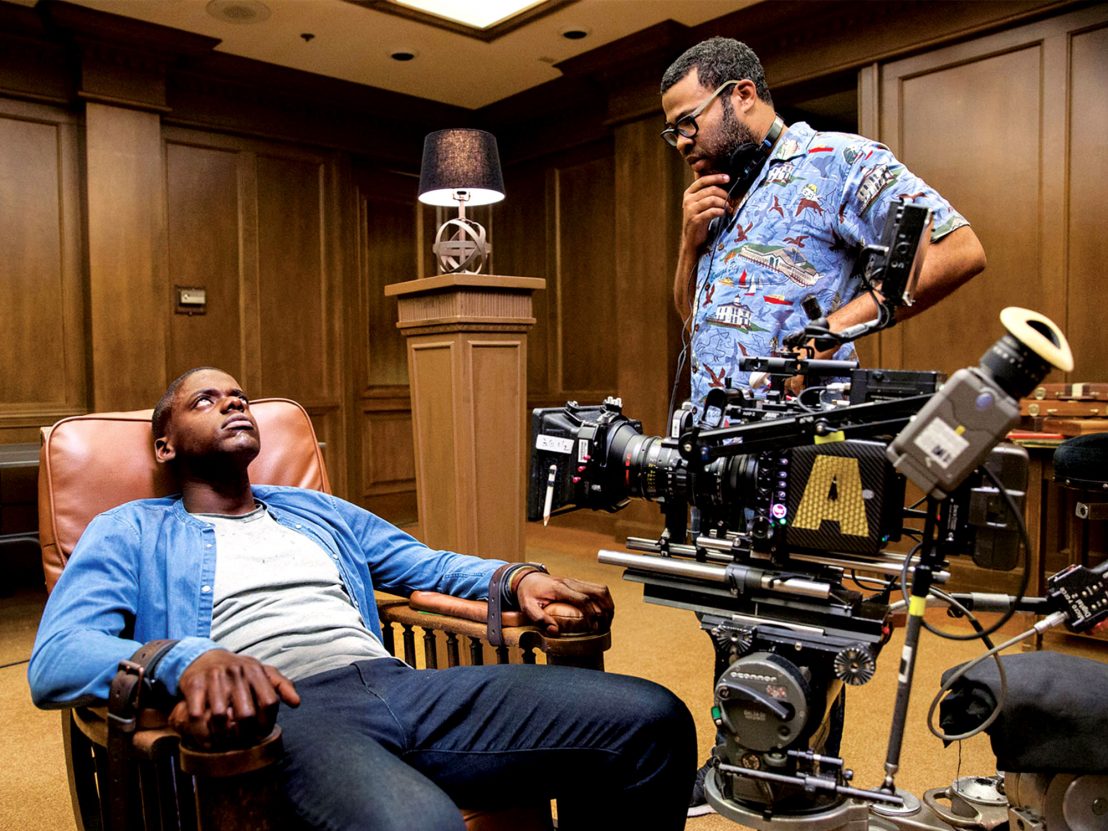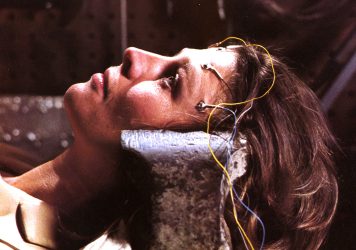
“When truth is not the truth, what dimension are you even in?” asked Jordan Peele during Super Bowl LIII, stepping through a door to nowhere in the first promo for his upcoming Twilight Zone reboot. It’s a question that propels the influential original series into a time of Trump and democracy-endangering disinformation.
Rod Serling’s 1960s anthology horror show famously opened with narration about, “a dimension as vast as space and as timeless as infinity, a middle ground between light and shadow, between science and superstition, between the pit of man’s fears and the summit of his knowledge.”
In 2019, that place sounds an awful lot like social media: the murky depths of Twitter, the alt-right swamplands of Facebook. No wonder the trailer generated a frenzy of excitement. Now isn’t merely a good time for a Twilight Zone revival – 2019, with its simulation-like sense of unreality and never-ending news twists, pretty much is the Twilight Zone.
A new version from the writer/director of Get Out seems like an easy win – especially with popular shows like Black Mirror and Electric Dreams having given audiences an appetite for stories exploring mankind’s capacity for darkness. But, just like in Serling’s strange tales, everything may not be as it seems…
Peele’s Twilight Zone reboot arrives on US screens on 1 April (a UK release is yet to be announced), almost 60 years after the first ever episode aired in October 1959. In that time, two TV revivals and a Steven Spielberg-produced feature film have come and gone, all struggling to replicate the spookiness of the original series.
There’s been no shortage of blockbusters infused with Twilight Zone’s DNA down the years, from Planet of the Apes to Inception, Shutter Island and The Sixth Sense – all high-concept films built on “what if?” premises and a bleak understanding of what it is to be human. They keep coming, too: Rupert Wyatt’s new sci-fi thriller Captive State, about a society brought to its knees by an alien race who turn the people of Earth against each other, is essentially the classic 1960 episode ‘The Monsters Are Due on Maple Street’ stretched to epic scale.
That episode began as so many did, establishing a picture-perfect American suburbia that, over the next 20-30 minutes, will completely unspool. “Late summer. A tree-lined little world of front porch gliders, barbecues, the laughter of children, and the bell of an ice-cream vendor,” begins Serling, setting the scene with clear signifiers of postwar, apple-pie America. Then a spaceship floats overhead. Cars stop working. Electricity cuts out. Suddenly a quiet street is plunged into paranoia and a mob mentality takes over as families begin to suspect someone among them may be an extraterrestrial spy.
This was typical of The Twilight Zone, in which American dreams quickly curdled into nightmares; the picket-fence idyll established in episodes’ first acts corroded by something malevolent and terrifying. In Trump’s America, though, what normality is there left to corrode? What the show sought to skewer in its original run doesn’t exist anymore, and Peele’s biggest challenge is to imagine something worse than the nightmare many Americans are already living.
Black Mirror became a success by taking the Twilight Zone formula and applying it to technology. It showed the sinister side of something we considered normal, a part of our everyday lives. Similarly Peele’s Twilight Zone must tap into modern anxieties and concerns. Details about the show are being kept under lock and key, a few casting announcements aside. What we do know is it will have to do more than replicate earlier incarnations to truly unnerve viewers. If anyone can do it, though, Peele can.
Published 5 Feb 2019

By S.L. Page
The episode’s interactive nature has the potential to expand our understanding of psychosis.

By Anton Bitel
Jordan Peele’s thoroughly modern horror examines racism in America with a sharp, darkly funny eye.

Before Charlie Brooker’s dark social satire, there was Donald Cammell’s technophobic sci-fi.